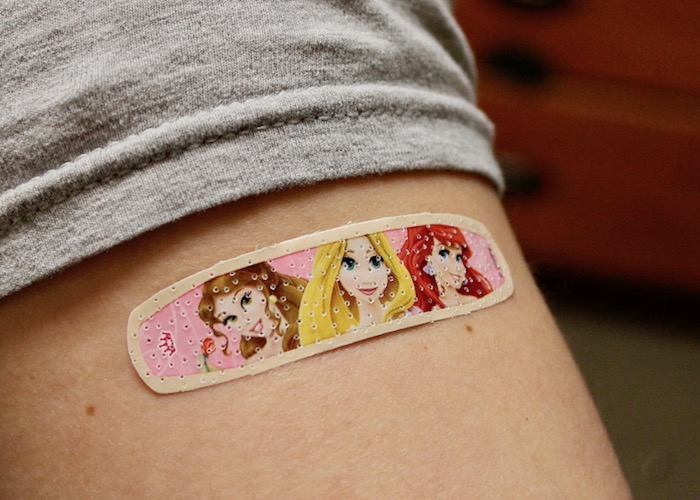This week, Oklahoma Sen. Ervin Yen introduced a bill in for the third year in row to remove all exemptions except the medical exemption, but the bill is yet to be successful.
According to CNN, as of August 2016, 47 states allow religious exemptions from vaccines, 18 states allow philosophical exemptions and all states allow a medical exemption.
“My Senate Bill [83] would remove all nonmedical exemptions,” Yen said in an interview with NewsOK in 2015. “The American Medical Association, the Oklahoma State Medical Association and the vast majority of other medical professionals agree with this approach.”
In Oklahoma, infants receive five vaccine doses before two months of age, and 30 doses from the time they begin pre-school until they enter college.
“These vaccines are required by state law for them to be able to go to school,” Oklahoma Christian University Instructor of Nursing Trevy Rauch said. “In Oklahoma, we have three different types of exemptions. You can have a medical contraindication, which you have to have a physician’s signature for, you can also have a religious objection and you have to have a religious leader’s signature, and then there is a personal objection.”
According to Rauch, vaccines are small amounts of the disease injected into the body so it can form an immune response to the vaccine.
“After you have received however many [doses] you need, you are immune to that disease,” Rauch said. “For Hepatitis B, you have to have three doses to be fully immune. The vaccine makes the body immune to the illness.”
According to the U.S. National Library of Medicine, Andrew Wakefield, a British scientist, and 12 of his colleagues published a case series which suggested measles, mumps and rubella (MMR) vaccines may cause autism. The study, although retracted in 2010 due to falsification, caused an increase in the number of parents choosing not to vaccinate their children.
“Social media and the internet continue to fuel misconceptions about the safety of vaccines,” Yen said. “People can, have and do die from contracting the highly contagious diseases that vaccinations prevent. It’s true that on rare occasions a vaccination may cause medical complications, but the [Center for Disease Control] estimates that less than one in a million vaccinations will result in a severe reaction.”
Junior biology student Whitney Hall said the dangers of not being vaccinated outweigh any side effects from being vaccinated.
“Some parents believe the safest option for their children is to not vaccinate them and raise them with a natural approach to healthcare,” Hall said. “But when you look at both options, vaccinating your child is the best option. Some believe that the chance their child has of contracting measles or mumps is worth the risk as opposed to what rarely happens to children when they are vaccinated, which is crazy given the facts.”
Amy Parker, a Voices for Vaccines contributor, said she was raised unvaccinated and on an incredibly healthy diet, using homeopathy, aromatherapy, osteopathy and daily supplements to combat illnesses. However, Parker said she contracted measles, mumps, rubella, a type of viral meningitis, scarlatina, whooping cough, yearly tonsillitis and chicken pox during her childhood.
“Having the ‘natural immunity sterilized out of us’ just doesn’t cut it for me,” Parker said. “My mother was the biggest health freak around — she would put most of my ‘crunchy’ friends to shame. I’m glad she gave us the great diet that we had, but it just didn’t stop me getting childhood illnesses. My two vaccinated children, on the other hand, have rarely been ill, and have had antibiotics maybe twice in their lives.”
Rauch said parents who do not vaccinate their children often believe it is better for the child to contract the disease and then fight it off.
“I had chicken pox as a child, so I am now immune to chicken pox, whereas my children they had the vaccine for chicken pox, so they are immune as well,” Rauch said. “So I had to fight the disease, but now there is a vaccine for it. A lot of people think chicken pox is very treatable and just lasts a week, but you can have devastating side effects from it.”
Sophomore elementary education major Elizabeth Gonzalez said although parents should not be forced to vaccinate their children, she would choose to vaccinate her own children.
“If a kid isn’t vaccinated for chicken pox and he comes into contact with the chicken pox virus and then comes to school with other children who don’t have chicken pox vaccine, then they’ll get chicken pox,” Gonzalez said. “The children who do have the vaccine, however, will not get it. I can’t really tell them to vaccinate their children because they make ultimate choices for their own children.”
Yen’s SB 83 faced the Senate for a third time on Feb. 6 when the bill was introduced and has been assigned to the Health and Human Services committee. If released by this committee, the date will be set for senators to vote on the bill.
“People may argue SB [83] violates parental rights,” Yen said. “But what about the rights of parents to send their immune-compromised child to school without the worry of being exposed to a highly contagious disease that could kill them?”














Be First to Comment